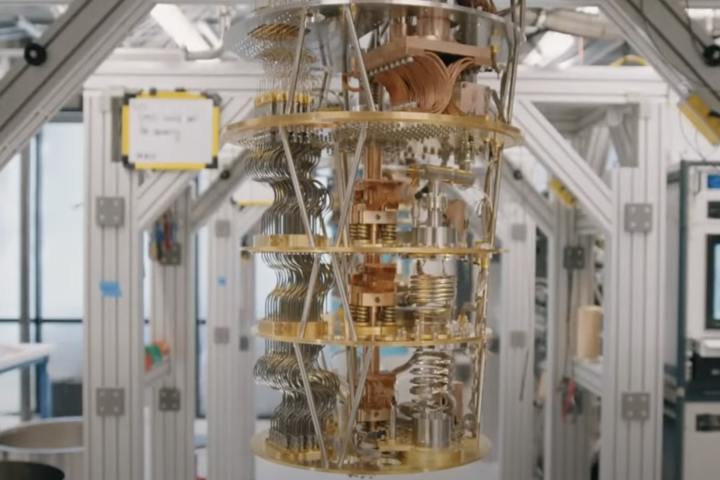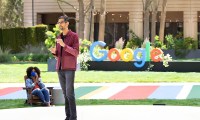
Google is looking to the future with its work on quantum computing, next-generation computer architecture that abides by the rules of quantum, rather than classical, mechanics. This allows for the possibility of unimaginable densities of information to be both stored and manipulated, opening up some game-changing possibilities for the future of computing as we know it.
At Tuesday’s Google I/O event, the search giant announced its new Quantum A.I. Campus, a Santa Barbara, California, facility which will advance Google’s (apparently considerable) quantum ambitions. The campus includes Google’s inaugural quantum data center, quantum hardware research laboratories, and quantum processor chip fabrication facilities.
At the facility, Google says it has a team working to build a useful, error-corrected quantum computer for the world that it hopes will “accelerate solutions for some of the world’s most pressing problems, like sustainable energy and reduced emissions to feed the world’s growing population, and unlocking new scientific discoveries, like more helpful A.I.”
The quantum dream
Because meaningful quantum computing — at least on the level that its proponents are aiming for — is still a way off, Google’s I/O demo was more about the infrastructure it’s building at its Quantum A.I. Campus than demonstrations of the practical applications it’s so far achieved. This involved actor Michael Peña being given a tour of the new facility with Google’s lead quantum engineer Eric Lucero.
Lucero showed Peña Google’s qubit fridge, among other developments. He also gave a sense of where Google is on the path to building an error-corrected quantum computer by literally depicting its engineers at the start of a winding path leading up to a giant mountain, the top of which represents an error-corrected quantum computer. In other words, Google is setting expectations at a realistic level.
Google is far from alone when it comes to investigating quantum computing. Microsoft and IBM have got a considerable presence in this field, just to name two of the big players operating in this space. However, Google’s work in the domain cannot be understated given the massive resources available to the tech giant. While we’re still a distance away from meaningful quantum computing, expect to hear plenty more quantum-related updates from Google in the months, years, and, most likely, decades to come.


